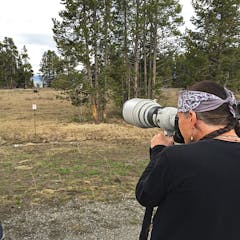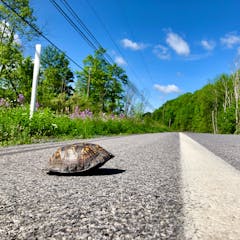
Articles on Human-wildlife conflict
Displaying 1 - 20 of 72 articles

Lake Kariba stretches between Zimbabwe and Zambia. Its residents are bearing the brunt of a climate change-induced drought, with fish supplies dwindling and human-wildlife conflict occurring.

Conservation strategies should promote equitable benefits across communities.

The caption may say that only scientists and trained professionals should handle wild animals, but viewers remember the image, not the words.

If a colony of flying foxes sets up in your backyard, you might be annoyed – or concerned. But these gentle bats are vital to our forests.

Why Arne Næss’s ideas of ‘deep ecology’ can help us live with wolves.

Hundreds of wildlife rehabilitation centers across the US and Canada treat sick and injured animals and birds. Digitizing their records is yielding valuable data on human-wildlife encounters.

We need to understand how bears are affected by climate change, and how those stresses might create new risks for humans.

Some European countries view wolf protection differently to others. A look at Spain’s experience may explain why.

Rhesus macaques are known for harassing people in New Delhi, where the G20 summit is being held, so authorities are taking action – but is it the right action?

Measures to address tensions between wildlife and humans are critical for Tanzania.

A newborn bison calf in Yellowstone National Park had to be euthanized after a visitor handled it in May 2023 – a recent example of how trying to help wild animals often harms them.

Research has found that urban gulls work out what’s good to eat by watching humans.

A new study looks back into history to assess human impacts on the range of Asian elephants and finds sharp decline starting several centuries ago.

Shepherding livestock may be more effective protection than killing predators.

Less than a century ago, Colorado hunted, trapped and poisoned all the wolves within its borders. Today it’s restoring them – a change that reflects a profound shift in human thinking.

New research studies the factors that determine whether large carnivore reintroductions will be a success.

Human-wildlife conflict can undermine public support for conservation.

Governments, scientists and conservation groups are working to protect 30% of Earth’s land and water for nature by 2030. Two scientists explain why scale matters for reaching that goal.

Conservation that places less emphasis on who may or may not use a piece of land could result in better outcomes for people and wildlife.

Setting aside half of Borneo would significantly reduce their decline, say experts.
